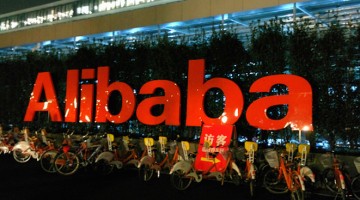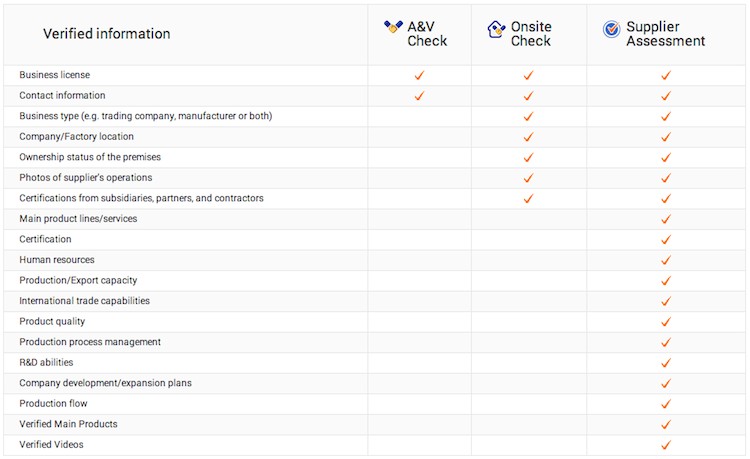
Whether you’re looking to start up an online store or diversify your offering to scale your current ecommerce business, you need two very specific things: a product idea and a sourcing method.
Product ideas can be difficult to come by, especially ones with true market viability. But coming up with the idea is often less challenging than the sourcing of those products. Sourcing is a crucial business process for every retailer, and there are four main ways to do it:
- Make
- Manufacture
- Dropship
- Wholesale
There are pros and cons to each method and many retailers use a combination, or all four, to truly scale. Doing so, however, often comes with a high cost, requiring brands to house their inventory, design and create unique products, sell both inventory and unique items to wholesalers and account for dropshipping when it makes sense.
Small businesses have long been hindered by the sourcing price barrier.
Click To Tweet
Typically, only those brands with high revenues and margins can account for the initial spend, and continuous upkeep, required to offer customers the best of all sourcing methods: unique products in combination with anything and everything else for which they may be looking. These brands are often considered lifestyle brands, offering everything a customer might need to live a particular way –– think Goop, ShopBop, Madewell, ModCloth, among others.
Small businesses have long been hindered by the price barrier here, but one big name brand making serious headlines is changing all of that –– enter, Alibaba.com.
What is Alibaba?
If you follow business or ecommerce news in the slightest, you’ve heard of Alibaba, the Chinese ecommerce company providing manufacturing sourcing options for businesses of all sizes at incredibly affordable prices. In all, Alibaba doesn’t operate exactly like any other ecommerce company out there.
Alibaba is a comprehensive directory of suppliers, connecting them directly to buyers.
Click To Tweet
For one thing, Alibaba is a comprehensive directory of suppliers, connecting them directly to buyers from all over the world (i.e. retailers). Alibaba presents millions of products to source, all from the suppliers themselves. In essence, you are getting supplier prices at insider rates, typically at a price point only senior and seriously connected merchandisers have before been able to nab.
Alibaba levels the sourcing playing field for legacy brands and small businesses alike.
How Does Alibaba Work?
Once you create an account with Alibaba, you can begin sourcing your products immediately. Unlike dropshipping, when you source through Alibaba you will need to house all products yourself, whether you do that in your home garage or a distribution center is up to you (though there are particular tax benefits in the U.S. for designating a spot in your home for this, especially for small businesses).
When you source through Alibaba you will need to house all products yourself.
Click To Tweet
Also keep in mind that you will need to buy your products via Alibaba in bulk (i.e. by the dozen or more). That said, you will want to be sure that the products you purchase are market viable, meaning that there is a demand for what you will sell.
Things to keep in mind as you browse products on Alibaba:
- Unit Price: Because Alibaba allows suppliers to sell directly to retailers, prices are generally much lower than you’ll find for similar products elsewhere. This means you can increase your margins. That said, you’ll see FOB often on Alibaba. FOB stands for Free On Board and means that the seller is responsible for all costs associated with getting the product to the dock. After that point, the buyer is responsible for all costs related to transportation from the dock to the store owner.
- Minimum Order Quantity: This is simply the minimum order amount that the supplier is willing to accept. Keep in mind that this is negotiable, especially with the increased fees associated with shipping once the product reaches port.
- Payment Options: For most buyers, you’ll likely want to utilize PayPal as your payment option. Escrow is also a good option for buyers, and more often preferred by suppliers. Check out Alibaba’s Payments Page for more information all all available payment options.
Alibaba and Quality Control
Like any online platform, scammers and hackers are always a possibility. Alibaba consistently works to track down and take out those who are masquerading as manufacturers (but whom simply mark up prices, then buy from the suppliers themselves, effectively making them middlemen), and scammers. For buyers, there are multiple ways to ensure that you avoid falling prey to these activities.
- Choose Escrow as a Payment Option: The escrow payment option holds your payment in escrow (i.e. does not go to seller) until you report back that you have received the products and they are to the quality and quantity expected. This payment option will save you from scammers, though not necessarily false manufacturers. This method will also give you the power to actual see and feel your product before you pay, essentially solving for quality control issues despite your supplier preferences.
- Contact the Supplier: Sourcing products from overseas can be a bit daunting and frightening for many small businesses. If you are wary about who you are purchasing from, ask them for a contact and set up a call. Skype works perfectly for this, plus you’ll be able to get a sense of the business and the people you will be working with.
- Request a Quote: RFQ (request for quote), is a simple process and part of the daily interactions between suppliers and buyers. This is your opportunity as a buyer to feel out a supplier’s process as well as negotiate. Simply send the supplier an email and be sure to request information regarding minimum order quantities, production time and pricing, pricing for samples and payment options.
- Verify Suppliers: Much like eBay and Amazon, Alibaba has a verification system for suppliers, alerting buyers to the historical accuracy of individual manufacturers. Below is a chart showing the different levels of verification. Look for these before you decide to purchase from a supplier.
Ecommerce Business as Usual
Legacy brands and chain stores have long been optimizing their direct from supplier to buyer relationships in order to lower costs, increase margins and diversify their offering. Alibaba is bringing that same capability to smaller retailers, and all you have to do is understand the process.
Alibaba is closing the gap between big box brands and smaller businesses.
Click To Tweet
If you do decide to use Alibaba, consider first developing a business strategy, then outlining the process along the way. In other words, be sure you communicate with your supplier on a regular basis in order to ensure that your product price and quality are fair market value. Better yet, build a relationship with the supplier and you could further increase your margins.
In our global ecommerce environment, Alibaba is simply closing the gap between big box brands and smaller businesses. Use them to increase your sales, revenue and brand experience overall.
Photo: leighklotz via Flickr Creative Commons
The post Alibaba 101: How the Chinese Ecommerce Giant Helps Scale Your Online Business appeared first on The Bigcommerce Blog.
![]()


